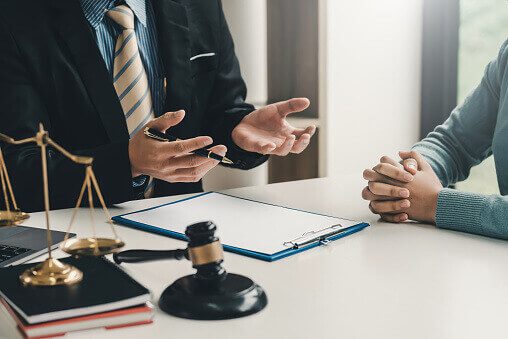
Whether you were in a car crash or fell on the ground due to someone else’s negligence, you need an injury attorney. They can help you recover the money you deserve for your injuries and damages.
Injuries can affect you physically, mentally and financially for months or years after the accident occurs. Getting compensated can make things much easier with the help of a personal injury attorney.
Liability Analysis
A good injury attorney will perform a full analysis of your case, which may include talking to medical professionals and reviewing in-depth medical reports. They will also research the latest in medical technology and equipment to get you the best possible outcome in your personal injury claim.
Once the analysis is complete, your attorney will present you with a detailed settlement presentation/package (e.g., demand). This package will include a lengthy analysis of liability and your claim, a detailed report of your injuries and damages and a demand for money damages.
A good injury lawyer will tell you that a comprehensive case review and analysis is a time consuming process, especially if your injury is complex, or if there are multiple parties involved. They will also explain that a well-rounded analysis will likely take several months. In a nutshell, your injury claim may take some time to find its footing, but it will pay off in the end when you receive a fair and equitable monetary recovery from the negligent party or parties.
Preparation for Trial
When you are injured in an accident, it is essential to get a lawyer with experience preparing cases for trial. This is important because trials involve a judge or jury, who are responsible for deciding whether the defendant was at fault and if you deserve compensation for your injuries.
Your injury attorney will have a number of tasks to complete before a trial, including gathering evidence and witnesses. Keeping track of medical bills, car repair expenses, photos and witness statements can be crucial to building your case.
You should also review any questions you have for your witnesses before the trial. This will ensure that you have clear answers from them and avoid surprises at trial.
The preparation phase can be stressful and time-consuming. Having a thorough plan for all steps in the preparation process can make the process less stressful and more successful for you and your team.
Negotiating a Settlement
One of the most important things you can do to maximize your recovery after a personal injury is to negotiate with the insurance company. However, settlement negotiations can be difficult and time-consuming.
Generally, the first step in negotiating your settlement is to send an initial demand letter to the insurer. This will detail your injuries and losses, and how they have affected your life.
When you receive an initial settlement offer from the insurance company, it is important to review it with your attorney before accepting it. This will help your lawyer determine whether it is a reasonable amount for your case.
It’s also essential to remember that the insurance company’s goal is to pay you as little as possible to resolve your claim. This often leads to low offers that are far less than you’d hoped for. This is why it’s crucial to work with an experienced injury attorney. They know how to use the law to your advantage.
Filing a Lawsuit
If you have been injured by someone else’s carelessness, you are entitled to seek monetary damages from the person who caused your injury. This compensation could include medical expenses, lost wages, pain and suffering, loss of consortium, and punitive damages.
A personal injury lawyer can help you build a strong case for your claim. This involves gathering evidence such as police and accident reports, witness statements, medical records, bills, employment documents, and property damage reports.
The evidence is used to establish liability for the defendant and to show how much money you need to cover your losses. Your attorney will also work with you to determine if you qualify for compensation for your lost wages and other non-economic damages, such as pain and suffering.
A lawsuit is a civil legal action by one party (the plaintiff) against another party (the defendant). The dispute may be about private law between individuals, business entities or non-profit organizations or public law issues, such as the enforcement of laws or seeking monetary damages for injuries caused by agents of the state.

 Phenomenon Studio: Driving Innovation through MVP Development, Product Design, and Team Extension
Phenomenon Studio: Driving Innovation through MVP Development, Product Design, and Team Extension  Probate and Estate Lawyer Brisbane: Comprehensive Guide to Legal Support in Estate Matters
Probate and Estate Lawyer Brisbane: Comprehensive Guide to Legal Support in Estate Matters  Choosing the Right Sexual Assault Lawyer for Your Case
Choosing the Right Sexual Assault Lawyer for Your Case  Handling Divorce in Boca Raton: Essential Insights
Handling Divorce in Boca Raton: Essential Insights  Navigating Divorce and Single Parenthood: My Journey as a Marketing Director in Orlando
Navigating Divorce and Single Parenthood: My Journey as a Marketing Director in Orlando